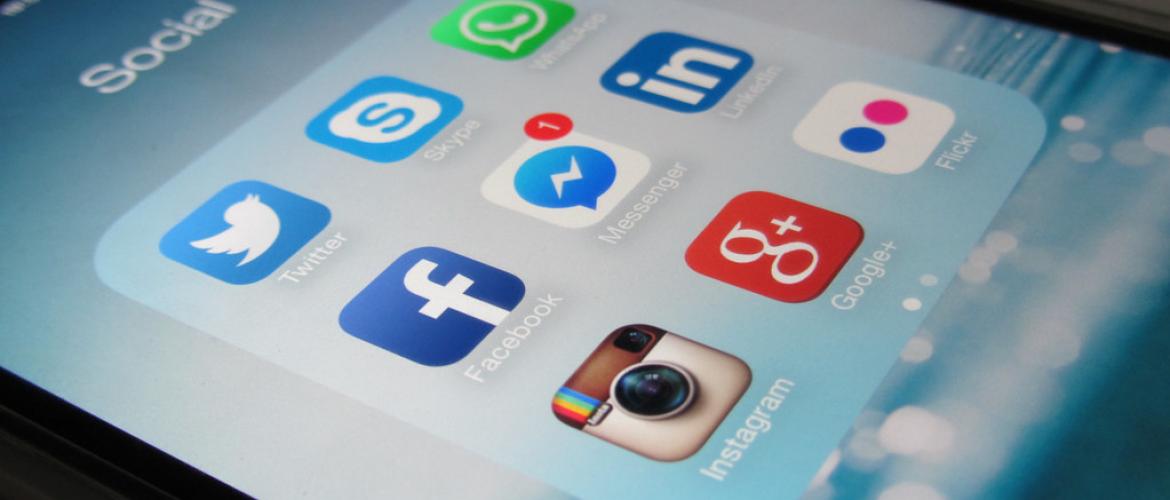Mass communication has revolutionized a party campaign in Indian elections for some decades. However, the advent of a variety of new digital technologies and platforms like WhatsApp, Twitter and Facebook for public campaigning since the 2014 elections have altered the character of such forms of communication.
Background
Social media are interactive computer-mediated technologies that facilitate the creation and sharing of information, ideas, career interests and other forms of expression via virtual communities and networks.
Users usually access social media services via web-based technologies on desktops and laptops or download services that offer social media functionality to their mobile devices. As users engage with these electronic services, they create highly interactive platforms through which individuals, communities, and organizations can share, co-create, discuss, and modify user-generated content or pre-made content posted online.
India: the social media giant
India is home to one of the single largest social media markets on the planet, with an estimated smartphone population of over a billion devices. WhatsApp, Facebook, Twitter, and YouTube all count India as a market of the near future with users bound to increase beyond the current number existing in any market. Fortunately, India’s industrious population has adopted foreign social media platforms to suit a domestic news stream, which has then been modified by political parties to streamline their election campaigns.
Almost all major national parties have an official mobile phone application of their own, available on the Android Play Store, iOS App Store and even desktop versions for computers. These apps usually contain straw polls on questions ranging from where a candidate should campaign to what the public likes about a potential candidate. Digital democracies have enabled a near-total takeover of the digital platforms for political campaigning.
The EC code of conduct applies
Chief election commissioner Sunil Arora said all major social media platforms — Facebook, Twitter, Google, WhatsApp and Share Chat — are committed to accepting only pre-certified political advertisements, sharing expenditure on it with the Election Commission (EC) and adhering to the “silence period” that comes into effect 48 hours before the polls. “All the provisions of model code of conduct shall also apply to the content being posted on the social media by candidates and political parties,” the EC said as it announced the 2019 Lok Sabha poll schedule. The EC has also decided to bring the bulk SMS/Voice messages on phone and election campaigning through social media under the purview of precertification of election advertisements, just like electronic and radio advertisements.
This is the first instance of private social media companies and networks being subjected to the Model Code of Conduct. The introduction of social media to the Model Code could be attributed to the claims of foreign hacking into the elections of the United States (2016), France (2017) and Germany (2018) as a precautionary measure.
Perhaps the biggest advantage of this is the astounding cost-to-value ratio of a campaign. Parties today can design and deploy apps which give them far more coverage at a dramatically lesser per capita cost. It also saves time and mountains of logistical efforts when potential voters can catch up on the candidate’s latest speech in Delhi by glancing at the mobile phones for a minute while after enjoying a hard day’s work in the southern fields of Karnataka.
Not all rosy
However, much of media energy has been devoted to describing these shifts, but relatively little attention has been paid to the overall impact on the political process. Therefore, it is the latter which is the main concern for this election.
The lack of a credible or efficient fact checking agency allows these political party apps to mutate into something worse. They are fertile grounds for radical party workers to concoct fake news about opposition candidates or worse, peddle unimaginable lies about their own contender to woo gullible voters. Clouds may hide a plane, but no one is hidden from the all-perceiving gaze of a social media election campaign.
Assessment
Our assessment is that social media has turned the political campaign process on its head by inverting cost calculations and reach factor of a campaign. We believe that with a few tweaks, Indian political parties could be setting the industry standards for virtual political campaigns, provided they are guided by a binding, comprehensive Code of Conduct exclusively for social media. We also feel that India’s young and rapidly rising population will feel more connected in an increasingly fast-paced country when they can view and understand what their preferred candidate has to say as their own time.

